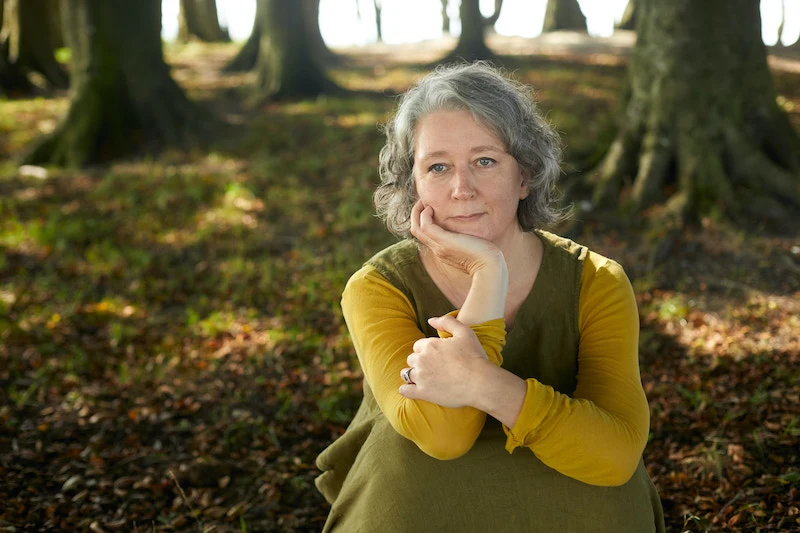Claire Fuller is the author Unsettled Ground (winner of the Costa Novel Award 2021, shortlisted for the 2021 Women’s Prize for Fiction), and three other acclaimed novels Bitter Orange, Swimming Lessons and Our Endless Numbered Days. Claire and I had a conversation about how our novels begin to take shape:
Lucy: You and I both seem to start our novels with an idea of a place we find interesting or fertile – and possibly also a hazy idea of a person too – but no plan or plot. I find it hard to pinpoint how, exactly, it goes from that to a novel (though I do know it can be painful and slow). Do you have a sense of how your novels unfold from that starting point – can you try to explain how it works for you?
Claire: It is really hard to pinpoint when that hazy idea starts to become a novel. I find that if I look at any of it too directly, it stops or becomes even harder. I have to come at it from an angle, maybe telling myself that I’m only messing around with a few words, seeing what might work or what might not. If I tell myself, ‘I’m starting my new novel now’, then it shies away from me. But I think there comes a point, probably only two or three thousand words in, when I begin to daydream about the story and all the things that could happen further down the line. These tiny ideas often come not when I’m writing but when I’m doing something else – usually reading someone else’s book, and they’re gone so quickly that it’s easy for me to lose them or forget them, so I’ve got into the habit of speaking into my phone and sending myself an email. This morning I sent one which just was, ‘the skin remembers’. My email inbox is full of these little snippets, and they come back to me when I next sit down to write, and some of them help me move forward and so the thing begins to coalesce into a novel. Actually coalesce is a good for what happens – a kind of slow spinning which ideas and thoughts start to stick to.

I’m really curious how a novel starts to appear for you too. Can you identify with any of what I’m trying to explain?
Lucy: I know what you mean about it all somehow coalescing and also about not looking directly at it for fear it will evaporate.
Magpie Lane started with the idea that a sinister doula (childbirth companion) would be interesting. I started reading about doulas, and somehow this morphed into a clever, mathematical nanny. The early part of a novel, for me seems to emerge out of this research phase where I do a lot of apparently pointless googling and reading. I have learned to go with anything that I either find myself unreasonably fascinated by, or that sparks a kind of excitement. My worst habit is that I seem to spend a year or more re-writing the first 5 chapters until I can really find the character. It’s horrible. Do you try to set yourself a target of how many words to write a day or anything like that to get yourself to move forwards? How do you cope with the empty page?
Claire: Something that sparks a kind of excitement is a really useful tool for me too. At the start of a novel or story I sometimes write a long list of things I’m interested in and often they make it into whatever I’m writing. I remember with Swimming Lessons, writing a list and ‘raining fish’ was on it, and a fish rainstorm made it into the book. I used to set myself a word target each day of a thousand words, but I found that I was writing rubbish in order to achieve it, and then deleting most of it the next day. So now I have a rule that I can edit what I did in the previous writing session, but that I must write some new words. It could be ten new words or a thousand, but I must write forward. If I didn’t set this rule I would just edit and edit and edit what I’ve already got. And I keep a writing diary where for each writing session I record the word count and just one or two sentences about how it went (usually badly!). It’s helpful though to see the word count going up. And I don’t really have a problem with the empty page. Editing the previous session will usually give me enough momentum to keep writing forward. Like going downhill on a bike fast enough to take me up the next rise.

Leave a comment